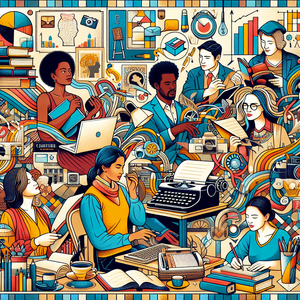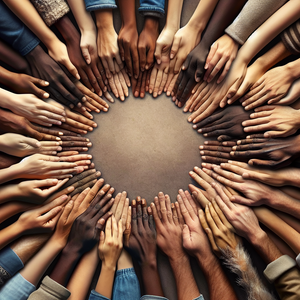Embracing Awkwardness: Unique Career Paths for the Clumsy

Comedy is a realm where clumsiness can shine. Comedians often use self-deprecating humor to connect with their audience, transforming personal awkward moments into relatable stories. Take, for example, Ellen DeGeneres, who has built her career on her unique quirks and vulnerabilities. Her ability to laugh at herself resonates deeply with audiences, proving that awkwardness can be a powerful tool in storytelling. Similarly, Kevin Hart’s comedic style often reflects his personal experiences and the humorous side of his clumsiness, allowing him to forge a connection with fans. For aspiring comedians, embracing clumsiness can lead to authentic performances that captivate and engage. Open mic nights and comedy clubs provide safe spaces to experiment with material that highlights personal experiences of clumsiness. By sharing their own stories of awkward situations, individuals can cultivate a comedic voice that is both relatable and endearing. Comedians such as Jerry Seinfeld and Hannah Gadsby have shown that awkwardness can create the foundation for humor, leading to successful careers that celebrate imperfection.
Art: Celebrating Individuality through Expression
Artistic fields offer another avenue for clumsy individuals to thrive. Many renowned artists, such as Vincent van Gogh and Henri Matisse, had their own struggles with physical coordination, yet their works have left an indelible mark on the art world. Clumsiness does not impede creativity; rather, it can enhance it by fostering a unique perspective. Consider the world of abstract art, where the freedom to express emotions and ideas without the constraints of conventional techniques allows clumsy individuals to shine. Artists like Jackson Pollock showcased how spontaneity and a lack of traditional technique could lead to groundbreaking work. Clumsy individuals may find liberation in experimenting with different mediums and styles, creating pieces that reflect their personal journeys. Workshops and art classes that encourage exploration can help budding artists develop their skills while celebrating their individuality. Many art institutions today emphasize the importance of personal expression over technical perfection, allowing artists to embrace their clumsiness as a strength rather than a weakness.
Creative Writing: Finding Voice in Vulnerability
Writing is yet another field where clumsiness can be an asset. Many successful authors, including J.K. Rowling and David Sedaris, have drawn inspiration from their awkward experiences. Writing allows for the exploration of clumsiness in a way that can be both healing and empowering. Creative writing workshops often focus on personal narratives, encouraging participants to share their life stories. Clumsy individuals can harness their experiences to create compelling characters and plots that resonate with readers. By weaving their unique perspectives into their writing, they can offer fresh insights into the human experience, showcasing that imperfections can lead to profound storytelling. For instance, the humorous essays of David Sedaris often reflect his own life’s awkward moments and misadventures, turning vulnerability into a source of connection and laughter for readers. By embracing their clumsiness, writers can create works that are not only entertaining but also deeply relatable.
Clumsiness does not have to be a hindrance; rather, it can be a catalyst for creativity and self-expression. By embracing their awkwardness, individuals can carve out unique career paths in comedy, art, and writing—fields that celebrate individuality and authenticity. The stories of successful figures who have turned their clumsiness into strengths serve as inspiration for those navigating their own journeys. In a society that often prioritizes precision, it is essential to recognize the value of imperfection. Clumsy individuals possess a distinct perspective that can contribute to diverse narratives and artistic expressions. By embracing their awkwardness, they not only find personal fulfillment but also inspire others to celebrate their unique traits. In the end, the most captivating stories are often those marked by authenticity, vulnerability, and a little bit of clumsiness. Rather than shying away from their quirks, clumsy individuals can learn to embrace them, transforming perceived weaknesses into distinctive strengths that pave the way for unconventional, yet rewarding, careers.
Stand-Up Comedian
Comedy clubs, festivals, entertainment agencies
Core Responsibilities
Develop and perform original comedic material, often drawing from personal experiences and awkward moments.
Engage with audiences during performances, adapting content based on audience reactions.
Participate in open mic nights and comedy festivals to hone skills and gain exposure.
Required Skills
Strong storytelling ability and stage presence.
Quick thinking and improvisational skills to handle unexpected situations.
Familiarity with comedic structures and timing.
Abstract Artist
Art galleries, museums, freelance opportunities
Core Responsibilities
Create visual art that emphasizes emotional expression over technical precision, utilizing various mediums.
Experiment with unconventional techniques to convey unique perspectives and feelings.
Participate in exhibitions and open studios to showcase work and engage with the art community.
Required Skills
Strong understanding of color theory and composition.
Ability to think creatively and push artistic boundaries.
Openness to feedback and willingness to explore different styles.
Creative Writing Instructor
Community colleges, writing centers, literary organizations
Core Responsibilities
Teach workshops focused on personal storytelling and embracing vulnerability through writing.
Provide constructive feedback on participants’ written work, helping them refine their voice and style.
Encourage exploration of different narrative techniques, including humor and character development.
Required Skills
Strong writing skills with a portfolio of published work or notable achievements.
Experience in facilitating group discussions and providing mentorship.
Ability to create a safe and encouraging environment for sharing personal stories.
Art Therapist
Hospitals, mental health clinics, private practice
Core Responsibilities
Facilitate art-making sessions for individuals seeking therapeutic benefits through creative expression.
Assess clients’ needs and tailor activities to help them explore emotions and experiences.
Document clients’ progress and provide feedback to enhance their therapeutic journey.
Required Skills
Background in psychology or counseling, along with art education or experience.
Strong interpersonal skills to build rapport with clients.
Ability to create a safe and supportive environment for self-exploration.
Humor Columnist
Newspapers, magazines, online platforms
Core Responsibilities
Write regular columns that explore everyday life’s humorous aspects, often drawing from personal anecdotes.
Conduct research and interviews to provide context and depth to written pieces.
Engage with readers through social media and public speaking events, enhancing visibility and connection.
Required Skills
Excellent writing and editing skills, with a distinct voice.
Ability to find humor in relatable situations and articulate it effectively.
Knowledge of current events and popular culture to inform content.


